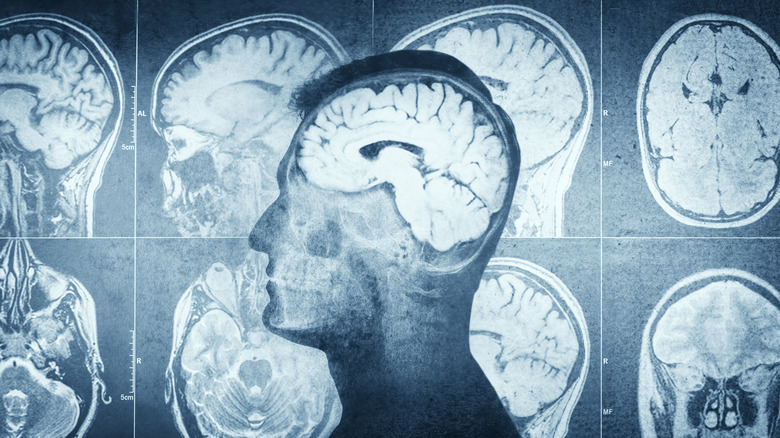The Surprising Reason The Pandemic Could Be Affecting Your Memory
If you feel like you can't remember things as well as you used to before the pandemic started, you're not alone. When people experience a lot of stress, it can impair cognitive functions, leading to memory problems and brain fog, according to Sharp Health News.
Dr. Mary Beth Bryan, a clinical psychologist with Sharp Mesa Vista Hospital says,"This pandemic has affected most, if not all, areas of people's lives and led to changes in how we work, socialize, and get our basic needs met. We have been in uncharted waters, not knowing what this virus was going to do, how best to protect ourselves and our loved ones, how others would respond, and how long this would last."
There's no doubt the pandemic has caused unprecedented levels of uncertainty for people around the world. Before it began, we may have had a certain degree of predictability in our lives: a work schedule, social life, and workout routine. But the pandemic upended all of that. And according to a recent article in the Harvard Business Review, our brains are just not made for this level of uncertainty and unpredictability. But why does this impact important brain functions like memory?
High stress interferes with cognitive functioning
While we certainly can live with some level of uncertainty without it disrupting our lives or negatively affecting our cognitive functioning, extended periods of uncertainty cause chronic stress that can become the source of real memory problems (via Sharp Health News).
"When stress and worry are high, the emotional center of our brain becomes activated, which interferes with our ability to think clearly and logically, and function effectively," says Dr. Mary Beth Bryan.
Researchers out of Ohio State University suggest it's the inflammation response from stress that impacts memory. The brains of stressed mice led to important discoveries of connections that exist between our immune systems, inflammation, chronic stress, and memories. When these mice were exposed to the kind of stress that mimics human stress, they forgot how to navigate a maze they'd mastered before. When researchers administered an anti-inflammatory on the mice, the memory loss quickly disappeared along with the inflammation.
As we start to feel a greater sense of routine over our lives, memory loss may become far less common, and our memories will likely return to normal. Additional lifestyle measures include getting plenty of sleep and eating well.


